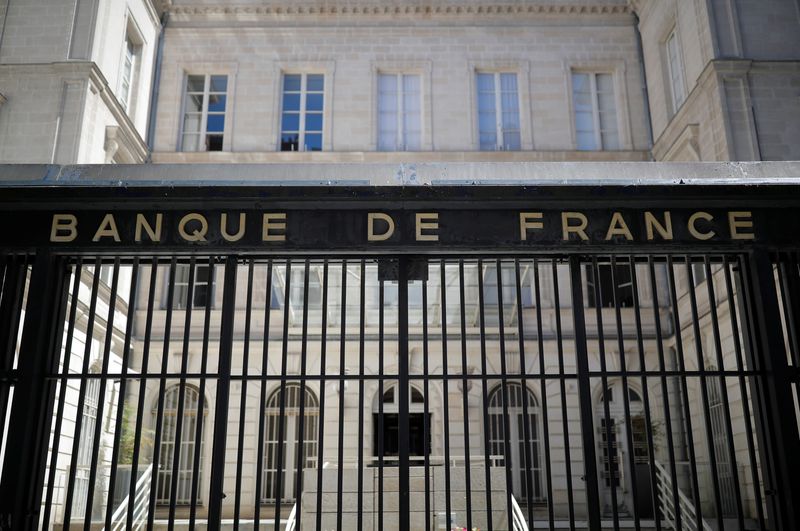PARIS (Reuters) - France's economy is set to gain momentum in the coming two years as lower inflation boosts consumer spending, helping to offset the drag from government belt-tightening, the central bank forecast on Tuesday.
The euro zone's second-biggest economy was set to grow 1.1% this year, the Bank of France said in its quarterly outlook, upgrading its forecast from 0.8% in June following a revision of national accounts data.
Growth was then expected to reach 1.2% in 2025 and 1.5% in 2026 as wages grew faster than inflation, boosting consumers purchasing power and thus their spending, the central bank said. Its 2026 estimate was trimmed slightly from 1.6% previously.
It estimated the economy could achieve those rates of growth even if the government tried to squeeze savings of the order of 20 billion euros from the budget annually.
Central bank head Francois Villeroy de Galhau said a belt-tightening effort of that size - composed mainly of spending cuts, but also targeted tax increase - was needed to bring the budget deficit in line with EU rules over the next five years.
"France is coming out of the illness of inflation that it has suffered from for two years. Now we need to deal with our chronic illnesses of debt and insufficient growth," Villeroy said in an interview with Le Parisien newspaper.
Under growing pressure to finalise France's 2025 budget, Prime Minister Michel Barnier needs to plug a gaping hole in the public finances with tough decisions about whether to raise taxes, cut spending or seek more time from Paris' EU partners to reduce its budget deficit.
However, if Barnier cuts spending or hikes taxes too aggressively, he risks irking opposition parties, who could then be tempted to push a no-confidence motion against his government, potentially toppling it.

Though France's currently volatile politics are rattling business confidence, households will benefit from inflation falling even faster than previously expected following news that regulated electricity prices would fall at least 10% in February.
The central bank forecast would see inflation well below the European Central Bank's 2% target for the next two years, estimating it would average 1.5% next year and 1.7% in 2026.